
M*A*S*H is an American war comedy drama television series that aired on CBS from September 17, 1972, to February 28, 1983. It was developed by Larry Gelbart as the first original spin-off series adapted from the 1970 feature film M*A*S*H, which, in turn, was based on Richard Hooker's 1968 novel MASH: A Novel About Three Army Doctors. The series, which was produced with 20th Century Fox Television for CBS, follows a team of doctors and support staff stationed at the "4077th Mobile Army Surgical Hospital" in Uijeongbu, South Korea, during the Korean War (1950–53).

Three's Company is an American television sitcom that aired for eight seasons on ABC from March 15, 1977, to September 18, 1984. It is based on the British sitcom Man About the House created by Brian Cooke and Johnnie Mortimer.
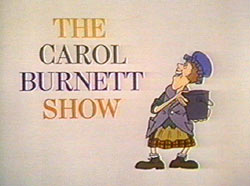
The Carol Burnett Show is an American variety/sketch comedy television show that originally ran on CBS from September 11, 1967, to March 29, 1978, for 279 episodes, and again with nine episodes in fall 1991. It starred Carol Burnett, Harvey Korman, Vicki Lawrence, and Lyle Waggoner. In 1975, frequent guest star Tim Conway became a regular cast member after Waggoner left the series. In 1977, Dick Van Dyke replaced Korman but it was agreed that he was not a match and he left after 10 episodes.

McMillan & Wife is an American police procedural television series that aired on NBC from September 17, 1971, to April 24, 1977. Starring Rock Hudson and Susan Saint James in the title roles, the series premiered in episodes as part of Universal Television's wheel series NBC Mystery Movie, in rotation with Columbo and McCloud. Initially airing on Wednesday night, the original lineup was shifted to Sundays in the second season, where it aired for the rest of its run. For the final season, known as McMillan, numerous changes were made that included killing off St. James' character of Sally McMillan.
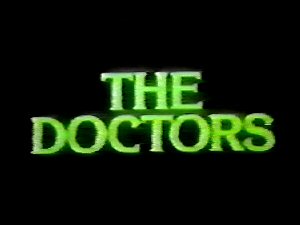
The Doctors is an American daytime soap opera television series which aired on NBC from April 1, 1963, to December 31, 1982.
Alison La Placa is an American actress best known for playing Linda Phillips on the sitcom Duet and its spin-off Open House and the recurring role of Joanna, Rachel’s boss who also dated Chandler on the sitcom Friends.
The following is the 1976–77 network television schedule for the three major English language commercial broadcast networks in the United States. The schedule covers primetime hours from September 1976 through August 1977. The schedule is followed by a list per network of returning series, new series, and series cancelled after the 1975–76 season. All times are Eastern and Pacific, with certain exceptions, such as Monday Night Football.

Kim Victoria Fields-Morgan is an American actress and director. She first gained fame as a child actress on the television series Good Times (1978–1979), and rose to greater prominence for her role as Dorothy "Tootie" Ramsey in the NBC sitcom Diff'rent Strokes (1979–1981), as well as its spin-off The Facts of Life (1979–1988).

Edgar McLean Stevenson Jr. was an American actor and comedian. He is best known for his role as Lieutenant Colonel Henry Blake in the television series M*A*S*H, which earned him a Golden Globe Award in 1974. Stevenson also appeared on a number of television series, notably The Tonight Show Starring Johnny Carson, The Doris Day Show and Match Game.

Hello, Larry is an American sitcom television series created by Dick Bensfield and Perry Grant, starring McLean Stevenson. It aired on NBC from January 26, 1979, to April 30, 1980. Its broadcast run consisted of 38 episodes over two seasons.

Baa Baa Black Sheep is an American television series that aired on NBC from September 23, 1976, until April 6, 1978. It was part period military drama, part comedy. In the final seven episodes, the character list was revamped, dropping some squadron pilots, adding a 16-year-old pilot and four nurses.
"Abyssinia, Henry" is the 72nd episode of the M*A*S*H television series, and the final episode of the series' third season. It was written by Everett Greenbaum and Jim Fritzell, and first aired on March 18, 1975. The episode is notable for its shocking ending, in which the unit's amiable commanding officer Lieutenant Colonel Henry Blake receives an honorable discharge and leaves for home, but in the final scene is reported killed by enemy fire. This ending prompted more than 1,000 letters to series producers Gene Reynolds and Larry Gelbart, and drew fire from both CBS and 20th Century Fox.
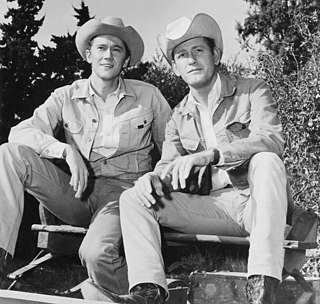
Wide Country was an American Western television series that aired on NBC from September 20, 1962 to April 25, 1963.

Diff'rent Strokes is an American television sitcom, which aired on NBC from November 3, 1978, to May 4, 1985, and on ABC from September 27, 1985, to March 7, 1986. The series stars Gary Coleman and Todd Bridges as Arnold and Willis Jackson, respectively, who are two boys from Harlem taken in by a wealthy Park Avenue businessman and his daughter. Phillip Drummond is a widower for whom their deceased mother previously worked; his daughter, Kimberly, is played by Dana Plato. During the first season and the first half of the second season, Charlotte Rae also starred, as Mrs. Edna Garrett, the Drummonds' first housekeeper, who ultimately spun off into her own sitcom, The Facts of Life, as a housemother at the fictional Eastland School. The second housekeeper, Adelaide Brubaker, was played by Nedra Volz. The third housekeeper, Pearl Gallagher, was played by Mary Jo Catlett, first appearing as a recurring character, later becoming a main cast member.
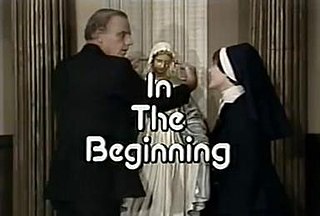
In the Beginning is an American sitcom originally created by Norman Lear, Jim Mulligan, and Norman Steinberg and produced by Lear's Tandem Productions company. The show aired on CBS from September 20 to October 18, 1978, and was cancelled after its first five episodes aired due to low ratings.

The Hogan Family is an American sitcom television series that began airing on NBC on March 1, 1986, and finished its run on CBS on July 20, 1991, for a total of six seasons. It was produced in association with Lorimar Productions (1986), Lorimar-Telepictures (1986–1988), and Lorimar Television (1988–1991).

The Good Place is an American fantasy-comedy television series created by Michael Schur. It premiered on NBC on September 19, 2016, and concluded on January 30, 2020, after four seasons and 53 episodes.
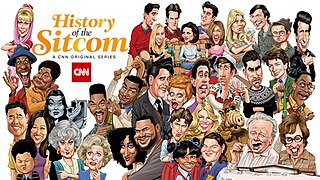
History of the Sitcom is an eight-part CNN documentary television series that traces the development of the American situation comedy show from the 1950s to the 21st Century. The show features 184 interviews with creatives, actors and directors including Norman Lear, Mel Brooks, Yvette Lee Bowser, Marta Kauffman, and Carl Reiner. The series follows a similar format of the CNN Original Series The History of Comedy.















